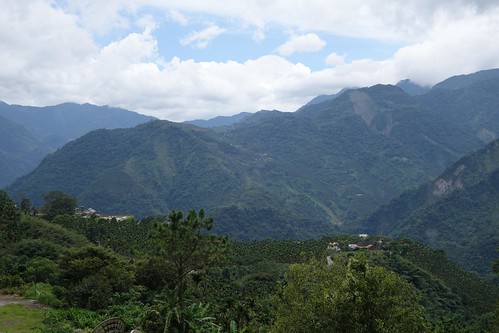Alishan area.
The Association of Taiwan Journalists posted this on their Facebook page about the new security laws in China and how they will affect Taiwan journalists. Click Read more for Chinese followed by English text:
台灣新聞記者協會反中國《國安法》聲明
2015/06/03
中國全國人民代表大會常委會日前公布了《中華人民共和國國家安全法》草案,其中部分條文不僅無視中華民國台灣的主權及公民權利,並且嚴重危及新聞採訪自由,台灣新聞記者協會特此發表聲明:
一、 中國《國安法》 草案第十一條中有如下文字:
「中國的主權和領土完整不容分割。維護國家主權、統一和領土完整是包括港澳同胞和台灣同胞在內的全體中國人民的共同義務。」
然而中華民國台灣是主權獨立的國家,和中華人民共和國互不隸屬。中國《國安法》屬國內法,卻在條文中規定另一個國家的國民「有義務」 維繫該國的「主權、統一和領土完整」。台灣記協呼籲中國人大正視兩岸分治,互不隸屬的現實,刪除上述荒謬條文。
二、 中國《國安法》 草案第八十一條規定:
「違反本法和有關法律,不履行維護國家安全義務或者從事危害國家安全活動的,依法追究法律責任。」
若綜合第十一和第八十一條可以發現, 中國《國安法》 不僅加諸台灣民眾維繫中國「主權、統一和領土完整」的義務,而且可以依照第八十一條的規定施加處分。也就是一旦立法完成,台灣人只要進入中國,都可能遭中國當局依照上述法條追訴法律責任。
三、台灣新聞工作者毋寧是中國《國安法》立法完成後的「高危險群」。 在「不盡義務」這樣高度不確定的法律概念下,新聞工作者不論是進行採訪,撰寫或製作報導、評論、著作,甚至臉書上的貼文,都可能變成中國政府指控「不履行國家安全義務」的「罪證」。
四、 中國《國安法》立法已經引發香港新聞界及國際記者聯會(IFJ)高度關注,也分別提出意見書和聲明。台灣記協除了呼應國際記者組織的聲明內容,肯定其訴求的價值外,也呼籲馬英九領導的中華民國政府應該,嚴肅正視中國《國安法》對台灣民眾及新聞工作者帶來的危害。任令中國政府以《國安法》惡性威嚇箝制台灣民眾,將是馬英九政府的兩岸政策最難堪、最惡劣的句點。
台灣新聞記者協會
Declaration of Opposition to China’s “National Security Act”
Association of Taiwan Journalists
June 3, 2015
The Standing Committee of China’s National People’s Congress recently announced a second reading draft of a “National Security Law of the People’s Republic of China.” Some of the articles of this draft law neither pay heed to the sovereignty of Taiwan nor acknowledge the fundamental human rights of our citizens and instead gravely endanger Taiwan’s news freedom and freedom of news coverage and freedom of expression.
The Association of Taiwan Journalists therefore declares its opposition to this act for the following reasons:
(1) Article 11 of the PRC draft “National Security Law” states: “The sovereignty and territorial integrity of China cannot be divided. Maintenance of national sovereignty and territorial integrity is a shared obligation of all the Chinese people, including compatriots from Hong Kong, Macao and Taiwan.”
This article ignores the reality that Taiwan, whose constitutional name is the Republic of China, is a democratic sovereign and independent state whose sovereignty does not overlap with the PRC. Although China’s “National Security Law” is a domestic law of the PRC, it arbitrarily declares that the citizens of another state have ``a shared obligation`` to maintain the PRC’s “national sovereignty and territorial integrity.”
The Association of Taiwan Journalists calls on the PRC’s National People’s Congress to recognize the reality that the two sides of the Taiwan Straits are governened by two distinct states whose sovereignty and legal juristictions and therefore “obligations” do not overlap and demands that the NPC delete this ridiculous article.
(2) Article 81 of the PRC draft “National Security Law” states: “Violations of this law and other relevant laws, by failing to perform national security obligations or engaging in activities endangering national security, shall be investigated for legal responsibility according to law.”
By examining these two articles together, it can be discovered that the PRC’s draft “National Security Law” not only arbitrarily declares that the people of Taiwan have “a shared obligation” to maintain China’s “sovereignty, national unity and territorial integrity,” but also can be punished for failing to do so under Article 81. In other words, once this draft law is enacted by the NPC, any Taiwan citizen who enters China may be subject to investigation for legal responsibility and prosecution by the PRC authorities.
(3) Taiwan news workers will undoubtedly become a “high risk group” after the PRC’s “National Security Law” is enacted.
Under the vaguely defined legal concept of “failing to perform national security obligations or engaging in activities endangering national security,” the work of journalists, whether deriving from coverage, writing or producing news reports, commentary or other publications or even posts on Facebook pages, may easily become “criminal evidence” for accusations of “failing to perform national security obligations” by the PRC government.
(4) The legislation of this “National Security Law” by China has already sparked grave concern from the International Federation of Journalists, its affiliate Hong Kong Journalists Association and other news freedom and human rights organizations. The IFJ and the HKJA have separately issued a declaration of protest and a petition to the PRC government on this matter.
The Association of Taiwan Journalists affirms the content and values expressed by the IFJ in its declaration and urges the Ma Ying-jeou government in Taiwan to pay serious attention to the harm that China’s draft “National Security Law” will inflict on the civil and political rights of the Taiwan people and on the freedom of expression and news coverage of Taiwan Journalists.
We call on the Ma Ying-jeou government to take grave note of the potential harm to the exercise by all residents of Taiwan of their fundamental human rights and to take cognizance of its obligations under the International Covenant for Civil and Political Rights to proactively “take the necessary steps” to protect the civil and political rights of all residents in Taiwan, notably the rights of freedom of expression and news freedom listed in Article 19, of the ICCPR and elaborated in General Comment 34 issued by the United Nations Human Rights Affairs Committee on July 29, 2011.
Indeed, the arbitrary inclusion by the PRC government of articles that impose constrains on the civil and human rights of the Taiwan people, including the rights of freedom of news coverage and freedom of expression, can serve as the most embarrassing and harmful consequence of the Ma government’s refusal to place guarantees for human rights at the center of its handling of bilateral relations with China.
_______________________
[Taiwan] Don't miss the comments below! And check out my blog and its sidebars for events, links to previous posts and picture posts, and scores of links to other Taiwan blogs and forums!

1 comment:
No worries. It's a peaceful rise and the PRC has no intention of changing the "status quo."
Post a Comment